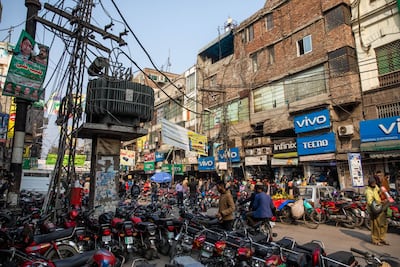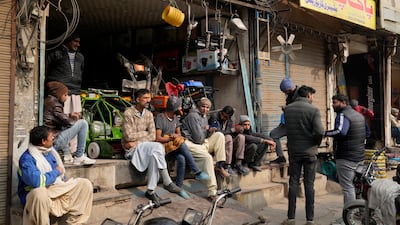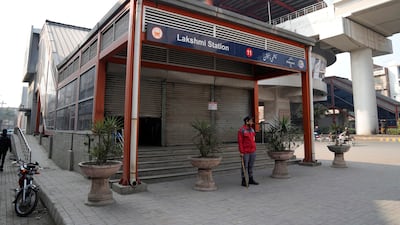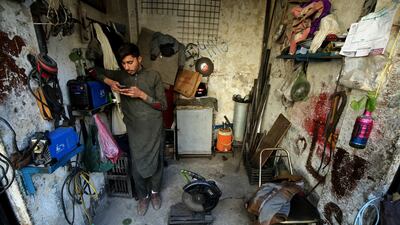The whole of Pakistan was plunged into darkness early on Monday when major power failures were triggered by frequency variation in the national grid, the country's Ministry of Energy said.
The power cut hit major cities including Islamabad, Peshawar, Lahore and Karachi, as well as in remote areas of the country.
The ministry said the frequency of the national grid went down at about 7am resulting in widespread breakdowns in the system.
The electricity was yet to be restored to much of the country by mid-afternoon, but the restoration process was under way, Ministry of Power and Energy Khurram Dastagir told The National.
“System maintenance work is progressing rapidly,” he said.
“However, when the systems were turned on in the morning, frequency variation and voltage fluctuation was observed in the south of the country, somewhere between Dadu and Jamshorom, and because of which power-generating units shut down one by one.”
The ministry was still looking into the issue and the restoration of grid stations in Peshawar and Islamabad had begun.
“I can assure you that electricity will be fully restored across the country within the next 12 hours,” Mr Dastagir added.

An official in the Peshawar Electric Supply Company, responsible for power in the country’s north-western province of Khyber Pakhtunkhwa, confirmed the breakdown was because of frequency variation. He was speaking to The National on the condition of anonymity as he is not authorised to talk to the media.
“When one power unit goes down, the remaining unit will definitely go down because there’s a connection between all of them and to minimise the load and damages they have to shut down all the units,” he said.
In October, there was a 12-hour breakdown in power after a disturbance was reported in two 500kV lines in the south of Karachi.
The power cut took about 8,000MW from the system, the official said.
He said the electricity restoration would take time and the power supply would simultaneously pass to different grid stations.
Airports and major hospitals were not affected because of alternative systems.
Government accused of incompetence
Citizens, journalists and politicians took to social media after the breakdown.
PTI leader and former Human Rights Minister Shireen Mazari called the government an “incompetent cabal of crooks”.
She said: “Incompetent cabal of crooks bringing the country down while they save their looted wealth abroad! This is what the Conspirators wanted?”
Journalist Shahbaz Rana wrote on Twitter that the power cut was a “symbol of governance breakdown and economic meltdown”.
“It is the price that the nation will pay for the inflated egos of our rulers. If things do not improve from here, there will soon be breakdowns of supply chains of almost all essential goods,” he added.
Mohammad Ilyas, who owns a tailors' shop in Peshawar city in Khyber Pakhtunkhwa region, told The National he missed out on making three items of clothing.
“We have no idea when the power will be restored but it has affected us a lot since this morning,” he said. “The department concerned needs to accelerate work on power restoration.”
Mohammad Ebad, a civil engineer who lives in Peshawar, told The National his house has had no water since Monday morning as he cannot run the pump due to the power loss.
He said: “When I woke up in the morning, the water tank was below the capacity that drained out in the next two to three hours and now we can't turn on the water pump to fill the water tank.”








